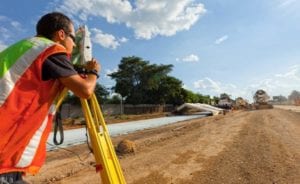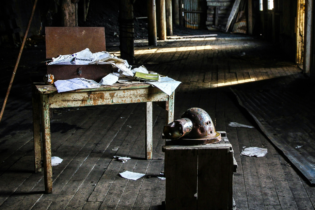Opinion article by Frank Stevens, president of the Institute for Municipal Engineering of Southern Africa (IMESA)
In 2003, the United Nations General Assembly selected 23 June as the international day of commemorating the value of public service to the community. The UN aptly named it Public Service Day – a day of recognising a competent civil service as one of the foundations of a sound democracy and a successful government. Consequently,pronouncing civil service nothing less than a human rights issue. As part of celebrating global public service, the United Nations Economic and Social Council established the UN Public Service Awards to laud innovative achievements and contributions of public service institutions worldwide. The awards promote professionalism, positive impact and prominence among civil servants, which are crucial measures needed to motivate and encourage service delivery excellence in the public sector. More than likely there are few citizens cognisant of the fact that the world celebrates Public Service Day. However, there are millions of disgruntled South African citizens who are deeply concerned with the level of public service this country delivers. And not without reason. We have seen parts of our country go up in flames as a result of poor service delivery. Poverty and unemployment are rife, the gaping inequality gap callously glares at government officials and citizens remain without running water and sanitation. Municipal funds are spent in dubious ways. Earlier this year the South African Human Rights Commission (SAHRC) made a national plea to government departments amid “a serious service delivery breakdown in several parts of South Africa and a perceived lack of government accountability”. Several government departments stepped up to the plate in a “defining meeting” to address some of the findings from the SAHRC’s National Hearing on Water and Sanitation. Report findings underlined the lack of access to water for some of the poorest communities in the country, poor water quality, the lack of sanitation services in informal settlements and poor maintenance of existing facilities, among others. I applaud this inter-governmental collaborative initiative, as well as the governmental departments thataccepted the need for action, as outlined by the commission.As a South African civil servant and on behalf of IMESA, serving as the organisation’s current president, I recognise these immense service delivery challenges. They are vast and they keep us awake at night.
As an organisation we aim to combat these challenges through capacity building and knowledge transfer. IMESA successfully liaised with the South African Local Government Association for the establishment of the Blue/Green Drop master classes to contribute to enhanced water quality and sanitation services in South Africa. Recently, the organisation also started lobbying for higher integration and collaboration between local governments across Southern Africa. Over the past few years, IMESA has increasingly tabled the importance of not only serving South African municipal engineers, but also ofdeveloping a network of support, knowledge sharing and service integration for the municipal engineering fraternity across the SADC states. As we are on the brink of opening branches in Harare, Zimbabwe, and in Mbabane, Swaziland, I recognise the similarities in infrastructure and service delivery challenges we share with our Southern African neighbours. Through IMESA’s collaboration with the International Federation of Municipal Engineers, we have also come to realise that the challenges we face and agonise over continuously within Southern Africa’s local authorities are not isolated to the SADC states, but are being experienced globally. The pipeline of young engineers and other technical staff presents a global challenge to local authorities. Worldwide, municipal engineers lament infrastructure maintenance and asset management problems, adequate budget spending and timeous delivery of services. I need to articulate, however, that the severity of the inequality of service provision in South Africa cannot compete with anywhere in the world. It is a challenge that government departments and associations of all levels cannot neglect or devalue. In a global context, this is a South African challenge – one we need to find proactive, combined solutions for. Public service organisations and departments around the world celebrate the valuable role that public servants play in making improvements to society and democracy. Let us take consolation in the fact that the South African public sector shares united service delivery challenges with the rest of the world, never forgetting that we have a unique human rights issue to fight locally.





